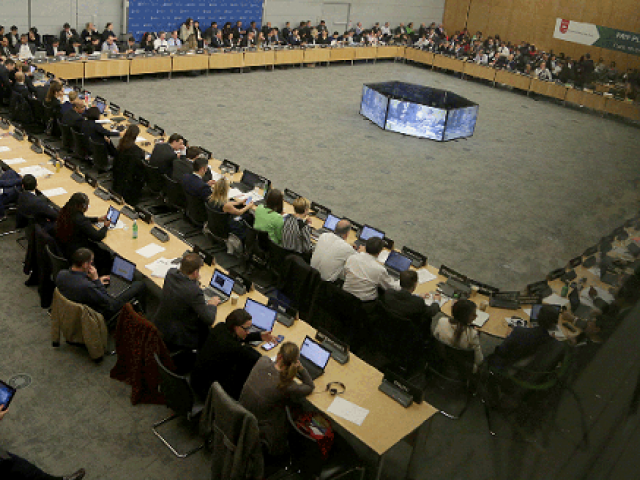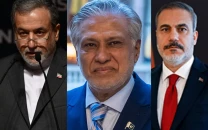After FATF fiasco, govt looks inwards
Internal review ordered to see how the mess came to be

PHOTO :FILE
The Financial Action Task Force (FATF) in its recent meeting in Paris decided to place Pakistan on the watch-list from this summer, although the formal announcement would be made in June after Islamabad submits its plan of action to curb terror financing.
The inclusion of Pakistan in the ‘grey-list’ is seen as a major setback, as Islamabad failed to convince the intergovernmental body that it had taken enough measures against the terror financing.
What is more worrying is that its allies including China and Saudi Arabia also withdrew their support when the United States pressed for punitive action against Islamabad.
“This situation warrants a detailed internal review to look into all aspects and find out what exactly went wrong,” a senior government official said on Sunday while requesting anonymity.
Sources claim Pakistan back on FATF watch-list, govt says no ‘official intimation’ yet
The key aspects authorities are now looking at include the country’s failure to successfully present its case before the FATF. On top of it, the move by Saudi Arabia and China to withdraw their support at the last minute was also something that needs discussions.
In the run-up to the Paris meeting, Pakistan called the US-sponsored move as ‘politically motivated” and aimed at undermining its economic progress.
Officials during the background briefing insisted that the move was part of the Trump administration’s overall strategy to put pressure on Pakistan to do more in the fight against terrorism.
But Islamabad was more than hopeful that its ‘friends’ would come to its help.
“That did not happen, unfortunately,” the official admitted. The decision left Pakistani authorities in a tight spot, and the government has still not come up with any official reaction yet.
Officials privately confirmed that Pakistan would indeed be placed on the FATF’s terror financing global watch-list from June, but would not offer any comment on the record.
FATF yet to take decision on putting Pakistan on terror financing watch-list: Indian media
Pakistan mounted a major diplomatic offensive soon after the US moved a motion before the FATF to place it on the global terror financing watch list. Prime Minister’s Adviser on Finance Miftah Ismail visited key western capitals to garner their support. A couple of other ministers also quietly travelled to FATF-member countries.
But all those frantic diplomatic efforts made little impact. Only three countries – China, Saudi Arabia and Turkey – pledged their support. Because of support from those three countries, consensus could not be achieved to move against Pakistan at the pre-plenary meeting of FATF.
The move prompted Foreign Minister Khawaja Asif, who was in Moscow on an official visit, to announce through a tweet that Pakistan had escaped from being placed on the ‘grey list.’
But the US managed to successfully persuade Saudi Arabia to withdraw its support for Pakistan, while China largely maintained stoic silence. With only Turkey solidly standing behind Pakistan, the motion sailed through the FATF session.
Some quarters in Pakistan have cited Asif’s premature tweet as one of the factors that compounded Pakistan’s problems at the FATF.



















COMMENTS
Comments are moderated and generally will be posted if they are on-topic and not abusive.
For more information, please see our Comments FAQ